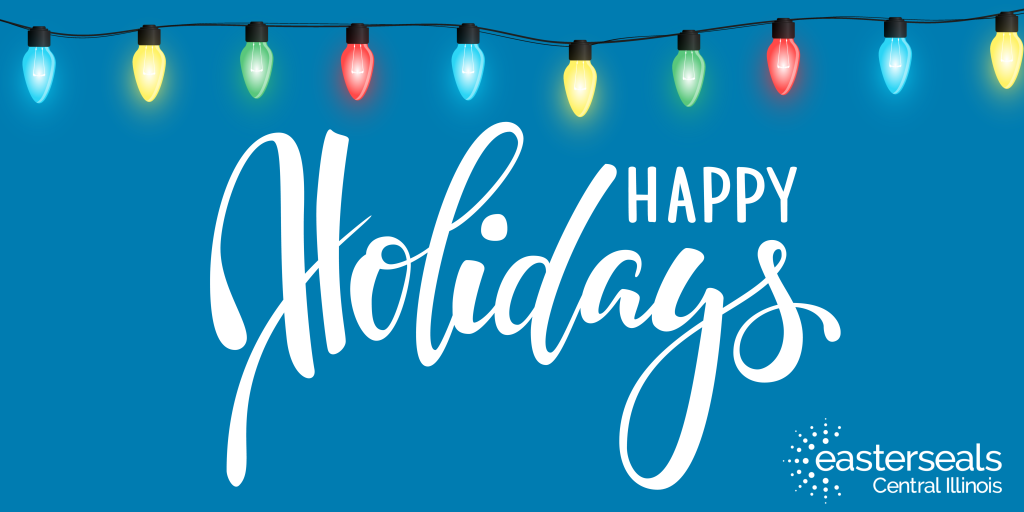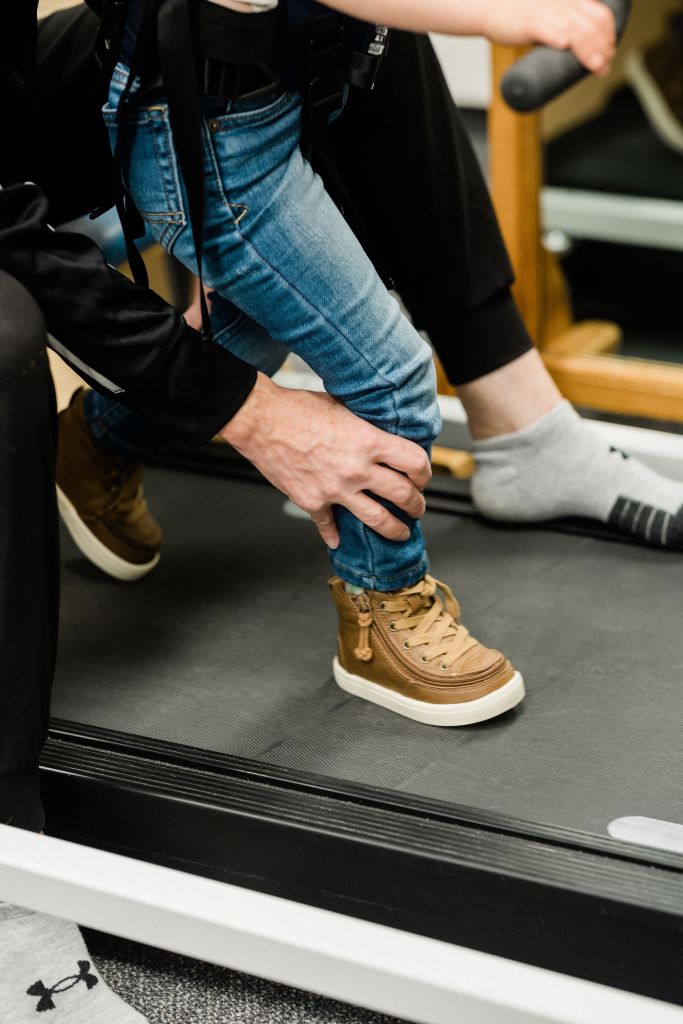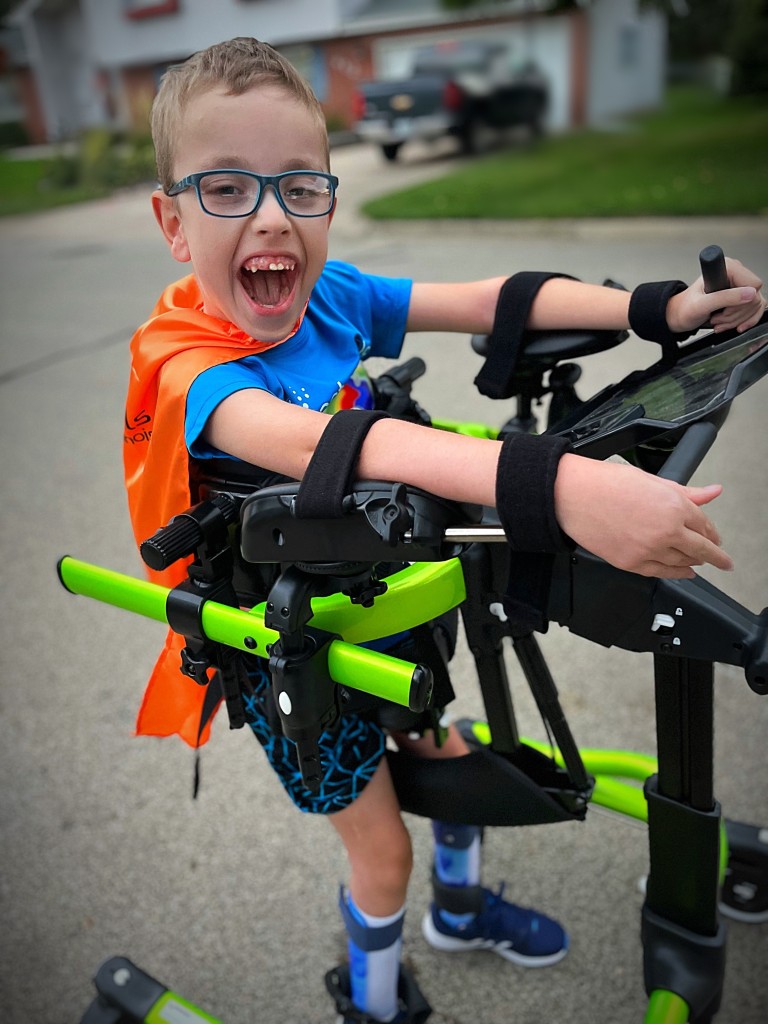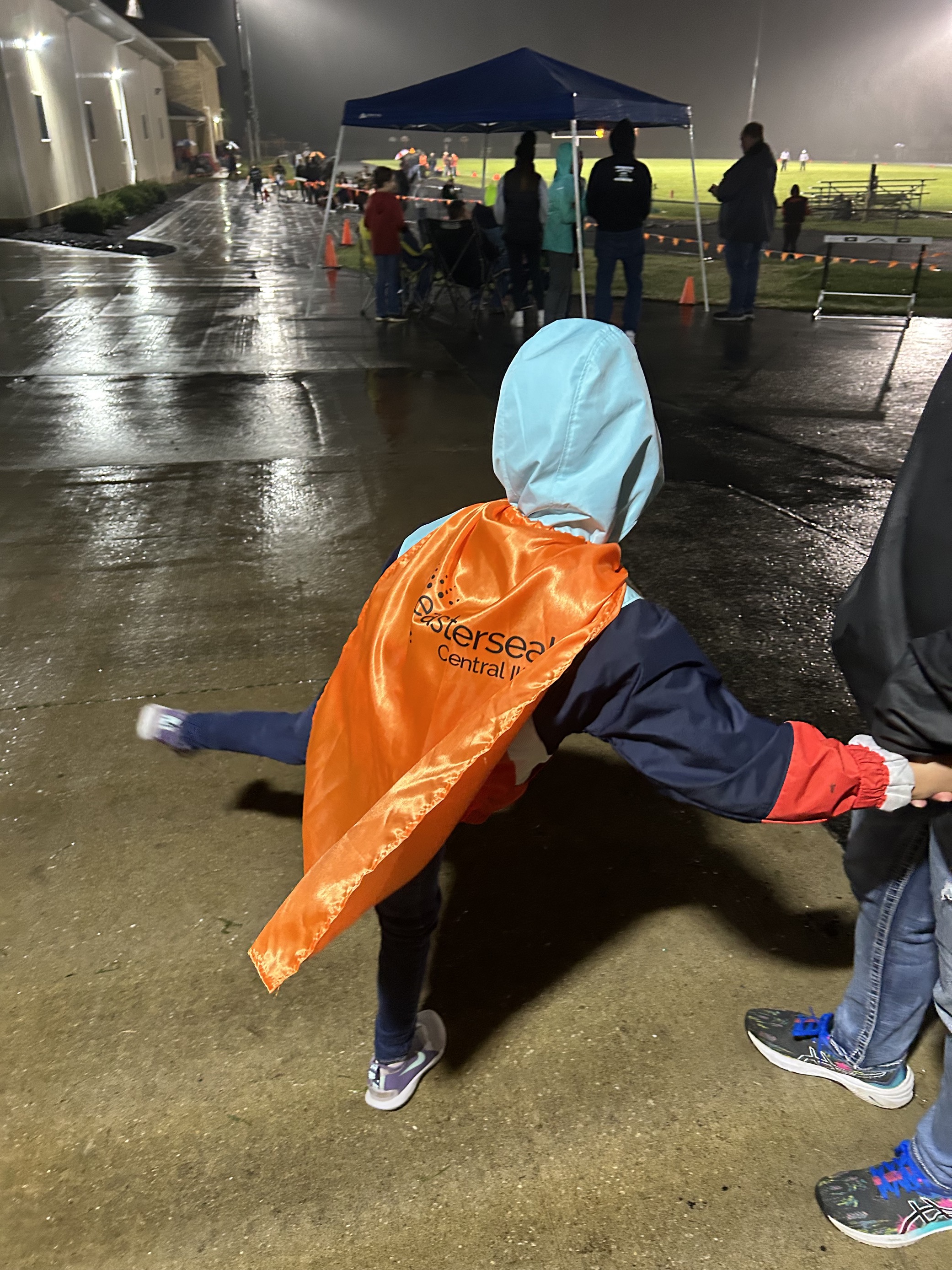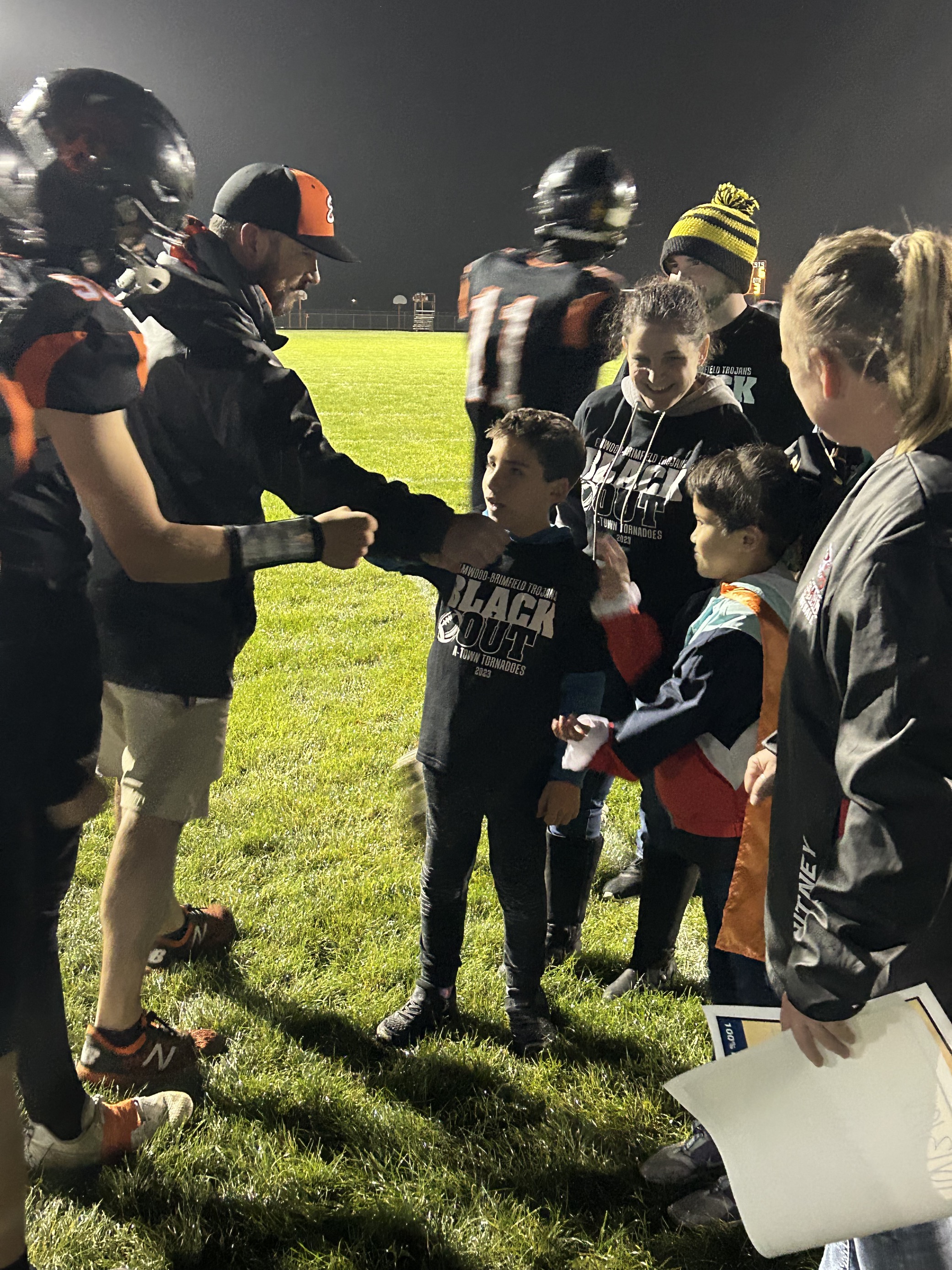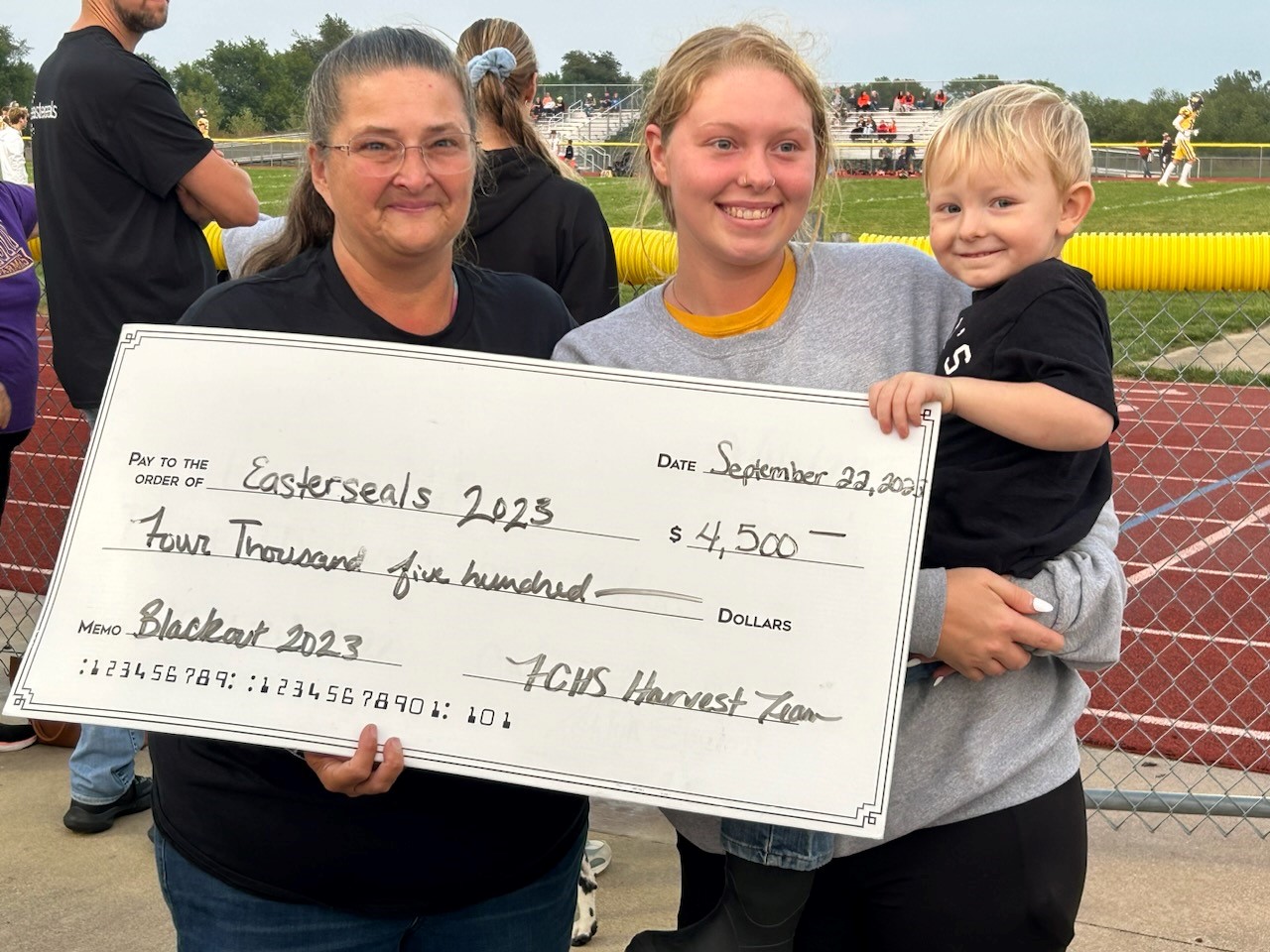
History
The Story of Easterseals Central Illinois
Easterseals is celebrating 101 years of providing exceptional services to children with disabilities, developmental delays, and other special needs.
Easterseals Central Illinois is proud of its long history of innovative, high quality, interdisciplinary services to children and families. Helping children meet and exceed their goals, celebrating each and every milestone, expanding dreams and promoting opportunities to participate more fully in the life of their communities, are all at the heart of the Easterseals mission.
Being part of some of life’s biggest moments is as inspiring and gratifying today as it was 100 years ago. Easterseals is never more proud than when children take their first steps, speak their first words, learn to button their shirt, ride a two-wheel bike independently, spend their first week away from home at summer camp, or when parents first realize that the future for their child is much brighter than they had dared to even imagine.
The Early Years
In 1919, Drs. Hugh Cooper and S.H. Easton started a weekly “crippled children’s clinic” in downtown Peoria to serve children with disabilities. Later, a “Crippled Children’s Coordinating Committee” was established to further expand these efforts. Both the clinic and the coordinating committee would serve as the foundation for what would eventually become Easterseals Central Illinois.
In 1936, the Crippled Children’s Coordinating Committee entered into an informal relationship with the National Society for Crippled Children and Adults which later became the National Easter Seals Society. That same year, specially designed “seals” the size of postage stamps and used on the backs of envelopes were first sold in Peoria County as a way to raise funds for the group. The effort raised $38 – nearly $600 in today’s dollars. These iconic seals were widely distributed each spring across the country and soon came to be known as “Easter Seals.” Notably, for many years, the Easter Seals were produced right here in Peoria by Fleming Packaging.
In 1948, a group of Easterseals volunteers in McLean County began offering a two-week residential camp for children with disabilities at Camp Heffernan located at Lake Bloomington. For more than 40 years, volunteers, including students from Illinois State University who served as camp counselors along with the W.D. Boyce Council of Boy Scouts provided enriching camping and outdoor experiences for thousands of children.
In the late 1940s and early 1950s, the Crippled Children’s Coordinating Committee was committed to providing education services to children with disabilities, in addition to medical services. Money raised by the committee helped fund a teacher who served children with disabilities at Saint Francis Hospital, as well as the first preschool program at the Institute of Physical Medicine.
In 1954, the committee purchased a house located at 1228 Hamilton Boulevard to serve as the “Crippled Children’s Center.” Occupational therapy, physical therapy, speech therapy, a developmental preschool, parent training programs and information & referral services were among the first services provided.
In 1955, the Easterseals Ladies Auxiliary was formed and hosted its first Fashion Show to raise needed funds. A sure harbinger of Spring, the 64th Annual Easterseals Ladies Auxiliary Fashion Show was held last month.
As programs and services grew, Easterseals was instrumental in advancing an innovative initiative designed to bring organizations serving people with disabilities together under one roof. Hailed as a model for the nation, the Allied Agencies Center was completed in 1969 where Easterseals made its home for more than 25 years.
In 1993, Easterseals launched a major capital gifts campaign to construct a free-standing facility to dramatically increase its capacity to deliver and coordinate on a wide scale, outpatient clinical, diagnostic, evaluation, treatment, and family support services. Opening its doors in 1996, the new Easterseals facility provided specially designed space for the University of Illinois College of Medicine’s Section for Child Development as well as space for the Central Illinois Orofacial Anomalies Team.
A Legacy of Program Innovation
In the late 1970s, Easterseals commissioned the University of Illinois’ Office of Recreation and Park Resources to conduct a needs assessment regarding community-based recreation opportunities for people with disabilities. The study indicated a glaring lack of appropriate, community-based recreational opportunities throughout the greater Peoria area and suggested that Easterseals could play a key leadership role. Easterseals took up the challenge and throughout the early 1980’s worked with a variety of organizations to significantly increase the number and variety of recreation opportunities for people with disabilities of all ages. These efforts led the Peoria and Morton Park Districts to form the Heart of Illinois Special Recreation Association in 1987.
In 1985, Easterseals established the Central Illinois Center for Independent Living. It was later spun off as an independent, not-for-profit organization and is known today as Advocates for Access.
Easterseals took a bold step in 1989 when it purchased Camp Heffernan from the W.D. Boyce Council, Boy Scouts of America. Rebranded as Timber Pointe Outdoor Center, in 1995 the camp is now recognized as a premier destination for specialized and inclusive camping, recreation and outdoor experiences for children and adults with special needs. Timber Pointe also hosts partner camps from across the Midwest.
In 1986 Easterseals hosted the first “Lekotek” program in downstate Illinois. Lekotek is a Swedish word meaning “play library.” This innovative program made adaptations to toys and then loaned them to children with disabilities and their families. Certified Lekotek Leaders showed parents how to use both conventional as well as adaptive toys to effectively engage, motivate and teach their child. This groundbreaking program helped to form the play-based therapy strategies used today.
Breaking Down Barriers
People with disabilities face many barriers to full participation in the life of their communities. While physical barriers come immediately to mind, it is often attitudinal barriers that are equally if not more stifling. Changing the way the world thinks about disability, advocating for equal access, affirming the dignity and worth of every person, and promoting inclusion are values long held and consistently demonstrated by Easterseals. While there remains much to be done, legislative advocacy at the local, state, and national level has been and will continue to be a hallmark of Easterseals.
Kids on the Block was a national program brought that found a home in central Illinois thanks to Easterseals. Using puppets to help educate children on inclusion and diversity, Kids on the Block was one of the most creative disability awareness programs of its time. Not only were the puppets fascinating to children but the scripts were real, relevant and connected with children on their level. Students from Notre Dame High School served faithfully as puppeteers. Disability awareness and inclusion has always been a cornerstone of the Easterseals mission. Today, the Easterseals Disability Awareness Program (DAP) is used in schools across central Illinois, while our Coins4Kids program teaches students about philanthropy at an early age.
Yes She Can
Sometimes breaking down barriers means doing something that people tell you can’t be done. Abbey Curran, who received services from Easterseals as a child, always dreamed of winning the crown in a beauty pageant, even when people told her that women with cerebral palsy simply can’t do that.
Never one for conventional wisdom and fueled by family, friends, and staff at Easterseals, Abbey was crowned Miss Iowa in 2008, and then became the first woman with cerebral palsy ever to compete in the Miss USA pageant. Not surprisingly, Abbey went on to create the Miss You Can Do It Pageant which provides children with disabilities, developmental delays and other special needs the opportunity to participate in a pageant that celebrates their beauty inside and out. Abbey and her pageant were the focus of an HBO documentary in 2013.
Move that Bus!
In 2008, the popular television show Extreme Makeover Home Edition, came to central Illinois thanks in large part to Easterseals therapist Angie DeLost. Constructing a new, accessible home in Pekin in just seven days captured the local community along with a national television audience and was a dream come true for eight year old Jacob Grys and his family. This fully accessible home provided a safe and limitless environment for Jake. Easterseals staff and volunteers gathered alongside the family and the show’s stars to shout the show’s familiar tagline, “Move That Bus!”
Responding to Community Needs
As an independent community asset, Easterseals is proud of its proven track record of responding dynamically to meet identified needs or gaps in services for children and families in our community.
Just one example is the creation of the Autism Spectrum Disorder (ASD) Early Diagnostic Clinic in 2003. As the prevalence of autism began to increase at an alarming rate, Easterseals responded by working with the University of Illinois College of Medicine – Peoria to establish a diagnostic clinic. Since its inception, the ASD Early Diagnostic Clinic has served more than 2,000 children.
While establishing the diagnostic clinic was an important first step, Easterseals moved deliberately to develop therapy services, family supports, counseling services, and advocacy for children with autism. Another recent example of the expanding line of autism services is the Easterseals Learning Academy (ESLA) located in Germantown Hills. The ESLA will soon complete its second full academic year as a private school for children with autism who cannot be successfully served in their home school district. The overarching goal is to return students to their home school district.
Our Vision for the Future
Easterseals is committed to innovative and collaborative approaches to helping children reach for and achieve their full potential. Our passion for children, the value we place on early identification, early diagnosis and early intervention has been the hallmark of Easterseals for the past 100 years. This, coupled with our ability to bring people and organizations together to accomplish what no single organization can, sets the stage for what promises to be a truly transformative future where every child is 100% included and 100% empowered.
The Story of Easterseals Nationally

As America’s largest nonprofit health care organization, Easterseals is committed to the comprehensive health and wellness of the more than 1.4 million people it serves each year and is prepared to respond to the needs of the one in four Americans living with disability today with outcomes-based services for all disabilities throughout the lifespan.
Among our services: early intervention, inclusive childcare, medical rehabilitation and autism services for young children and their families; job training and coaching, employment placement and transportation services for adults with disabilities, including veterans; adult day services and employment opportunities for older adults – in addition to a variety of additional services for people of all ages including mental health and recovery programs, assistive technology, camp and recreation, caregiving support including respite – and much more.
Additionally, we’ve served transitioning military, veterans and their families and caregivers since WWII and continue to be the “go to” resource for them to help ensure their successful transition to civilian life.

Tragedy Leads to Inspiration
In 1907, Ohio-businessman Edgar Allen lost his son in a streetcar accident. The lack of adequate medical services available to save his son prompted Allen to sell his business and begin a fund-raising campaign to build a hospital in his hometown of Elyria, Ohio. Through this new hospital, Allen was surprised to learn that children with disabilities were often hidden from public view. Inspired to make a difference, in 1919 Allen founded the National Society for Crippled Children, the first organization of its kind.
The Birth of the Seal
In the spring of 1934, the organization launched its first Easter "seals" campaign to raise money for its services. To show their support, donors placed the seals on envelopes and letters. Cleveland Plain Dealer cartoonist J.H. Donahey designed the first seal. Donahey based the design on a concept of simplicity because those served by the charity asked "simply for the right to live a normal life." The lily - a symbol of spring - was officially incorporated as the National Society for Crippled Children’s logo in 1952 for its association with new life and new beginnings.
Expansion of the organization
In 1945, we expanded our vision across the country and in communities nationwide when we opened our services to adults and returning WWII veterans.
 Easterseals Emerges
Easterseals Emerges

The overwhelming public support for the Easter "seals" campaign triggered a nationwide expansion of the organization and a swell of grassroots efforts on behalf of people with disabilities. By 1967, the Easter "seal" was so well recognized, the organization formally adopted the name "Easter Seals."
 Americans with Disabilities Act
Americans with Disabilities Act

Prior to the passing of the ADA on July 26, 1990, Easterseals was a leading advocate for the American Disabilities Act (ADA) and actively lobbied in Washington and across the country for its adoption. Easterseals also created some of the most powerful advocacy pro-ADA public service campaign with messages to support the law and its implementation. After the passing of the ADA, Easterseals worked tirelessly to ensure that all people are empowered to access their rights under the ADA. Read more about Easterseals history with the Americans with Disabilities Act.



